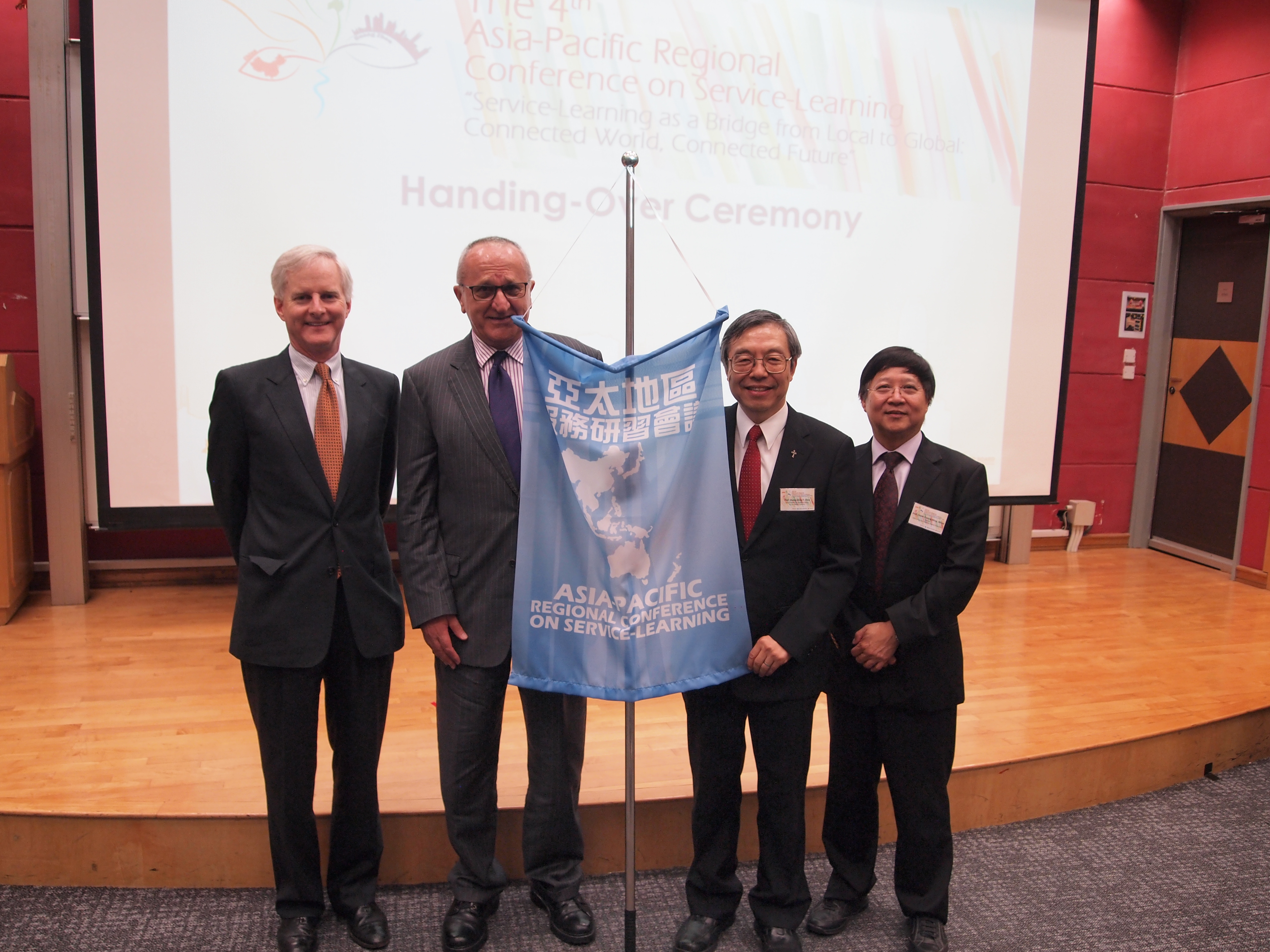Location
MD152, Paul Cardinal Shen Medical Building, Fu Jen University
Start Date
28-5-2015 10:30 AM
End Date
28-5-2015 12:00 PM
Description
During the past several years, we have heard several long-time advocates of service-learning integration into teacher education express concerns about how service-learning fits into the mix of pedagogies in the 21st Century school. In this age of hyper-accountability, is service-learning too hard to document and too complicated to implement? Has service-learning’s time passed? Does service-learning fit in the 21st Century school? Why service-learning now?
Today we are faced with unprecedented new challenges in educating our youth: the Internet and other forms of mass media can be a huge impediment to helping out youth become full and able participants in our society. Google, Alibaba, Facebook, "reality" TV, etc. all create alternate nodes of information and socialization for our youth that run counter to the belief systems promoted by most of us.
I want to ensure that we don’t lose sight of the core duties of our schools. That means that students not only need to read and compute, but also must relate, conflict, reconcile, judge, decide, and reflect. Education enables our children to do more than make a living; it enables them to make a life.
Service-learning not only helps students and teachers improve their test scores, it also deepen their community engagement, and develop skills and attitudes necessary for a well-rounded life. Service-learning is also one of only a few teaching strategies to have evidence of impact across the entire spectrum of school outcomes.
As we continue our work to reform and strengthen our schools, there is a risk that policymakers will confuse pragmatic efficiency with authentic effectiveness—an oversimplification that may be seductive. We must remember that the most effective teachers are not narrowly focused in any one specialty or technique, but instead employ different strategies for different learning situations and therefore possess the power to reach the greater number of students.
Recommended Citation
Erickson, J. A. (2015, May). Educating in the digital age: Why service-learning is more important now than ever. Paper presented at the 5th Asia-Pacific Regional Conference on Service-Learning: Love Journey: Community Engagement through Service-Learning, Fu Jen Catholic University, Taiwan.
Included in
Educating in the digital age : why service-learning is more important now than ever
MD152, Paul Cardinal Shen Medical Building, Fu Jen University
During the past several years, we have heard several long-time advocates of service-learning integration into teacher education express concerns about how service-learning fits into the mix of pedagogies in the 21st Century school. In this age of hyper-accountability, is service-learning too hard to document and too complicated to implement? Has service-learning’s time passed? Does service-learning fit in the 21st Century school? Why service-learning now?
Today we are faced with unprecedented new challenges in educating our youth: the Internet and other forms of mass media can be a huge impediment to helping out youth become full and able participants in our society. Google, Alibaba, Facebook, "reality" TV, etc. all create alternate nodes of information and socialization for our youth that run counter to the belief systems promoted by most of us.
I want to ensure that we don’t lose sight of the core duties of our schools. That means that students not only need to read and compute, but also must relate, conflict, reconcile, judge, decide, and reflect. Education enables our children to do more than make a living; it enables them to make a life.
Service-learning not only helps students and teachers improve their test scores, it also deepen their community engagement, and develop skills and attitudes necessary for a well-rounded life. Service-learning is also one of only a few teaching strategies to have evidence of impact across the entire spectrum of school outcomes.
As we continue our work to reform and strengthen our schools, there is a risk that policymakers will confuse pragmatic efficiency with authentic effectiveness—an oversimplification that may be seductive. We must remember that the most effective teachers are not narrowly focused in any one specialty or technique, but instead employ different strategies for different learning situations and therefore possess the power to reach the greater number of students.
